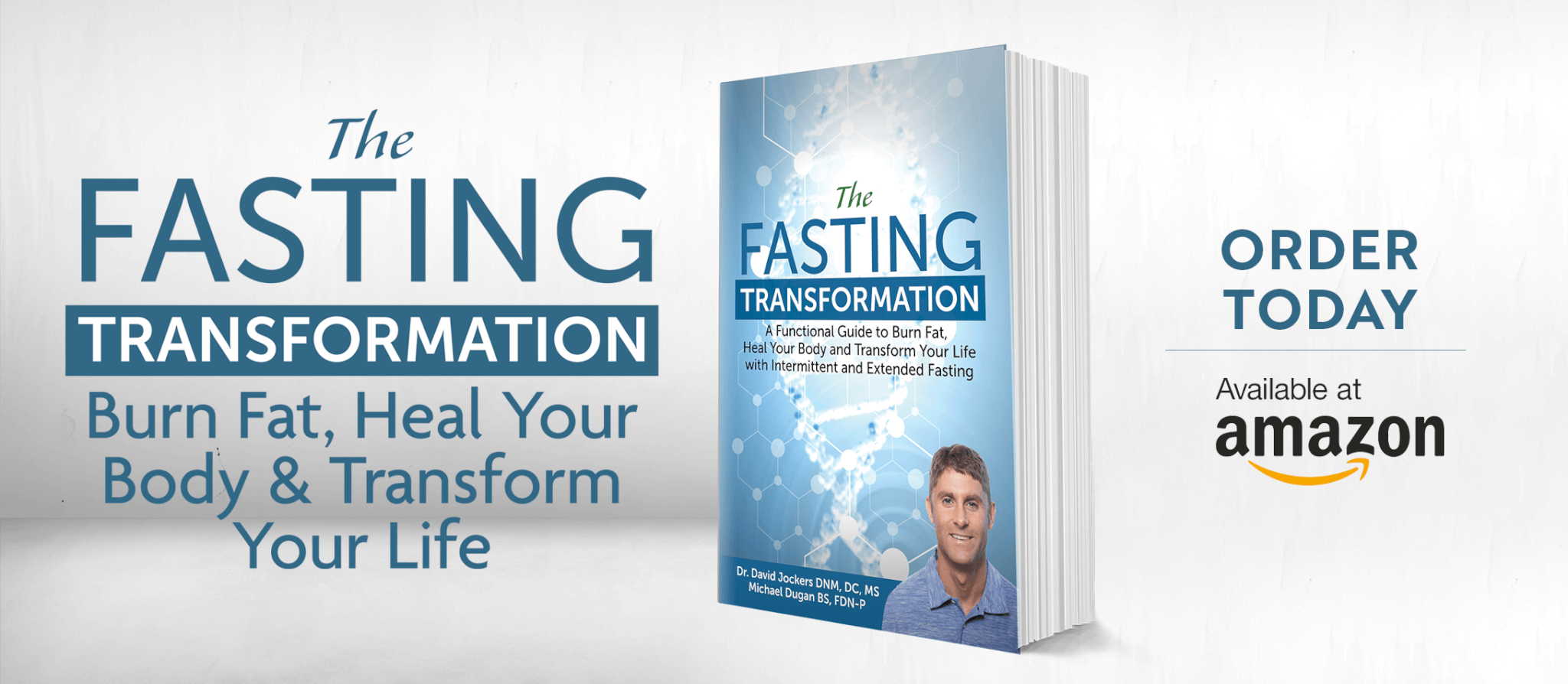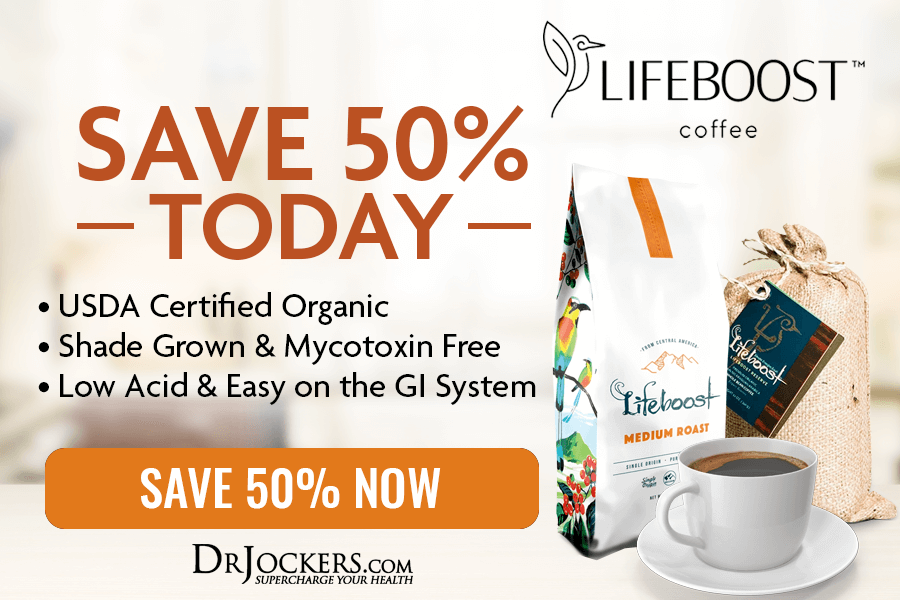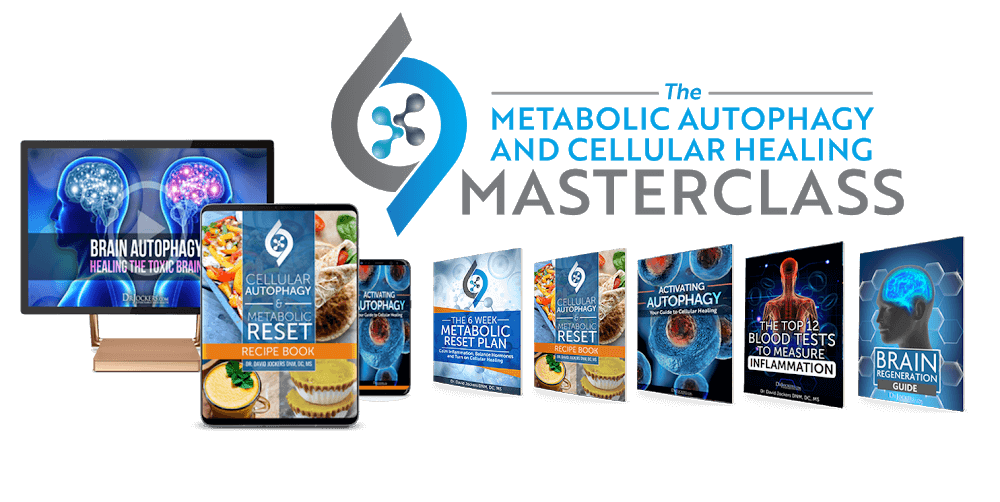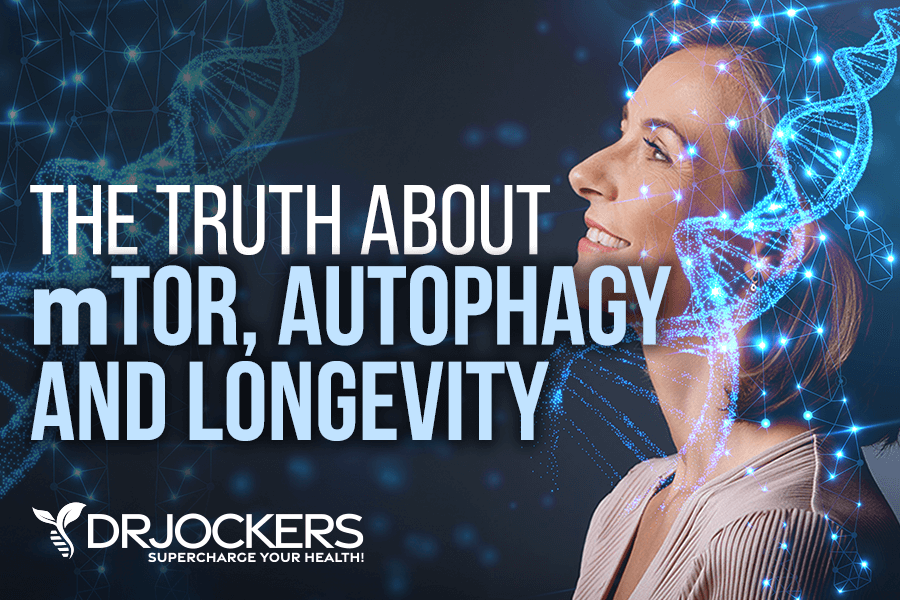 The Truth About mTOR, Autophagy and Longevity
The Truth About mTOR, Autophagy and Longevity
We all want to live a long life. Chances are, you not only want to live a long life, but a healthy life full of vitality. To improve longevity and health, you have to understand the importance of mTOR and autophagy. A lot of practitioners focus on increasing autophagy and reducing mTOR for health. However, they are both important. For health and longevity, you want the right cycle of autophagy and mTOR.
In this article, you will learn what the mTOR pathway is. I will explain what the AMP-K pathway is. I will go over the importance of autophagy for longevity. You will understand when mTOR becomes a problem. You will learn about how to optimize mTOR and autophagy for longevity.
What is the mTOR Pathway?
So, what is the mTOR pathway? The acronym mTOR stands for mammalian target of rapamycin. It is also known as the mechanistic target of rapamycin or FK506-binding protein 12-rapamycin-associated protein 1 (FRAP1).
It is a master pathway to our metabolism. It is a nutrient-sensing pathway. It stimulates cell reproduction and cell growth. It increases the cell biomass. It helps to regulate cellular survival, cellular growth, cell motility, cell proliferation, autophagy, and protein synthesis.
For example, a child will have a high-growing mTOR pathway because they are growing. So will a pregnant woman have elevated mTOR, who is growing a child inside their belly? Bodybuilders are also following strategies to increase their mTOR because they want to grow more biomass and build more muscle. A temporary increase in mTOR can help to improve fat burning and muscle building.
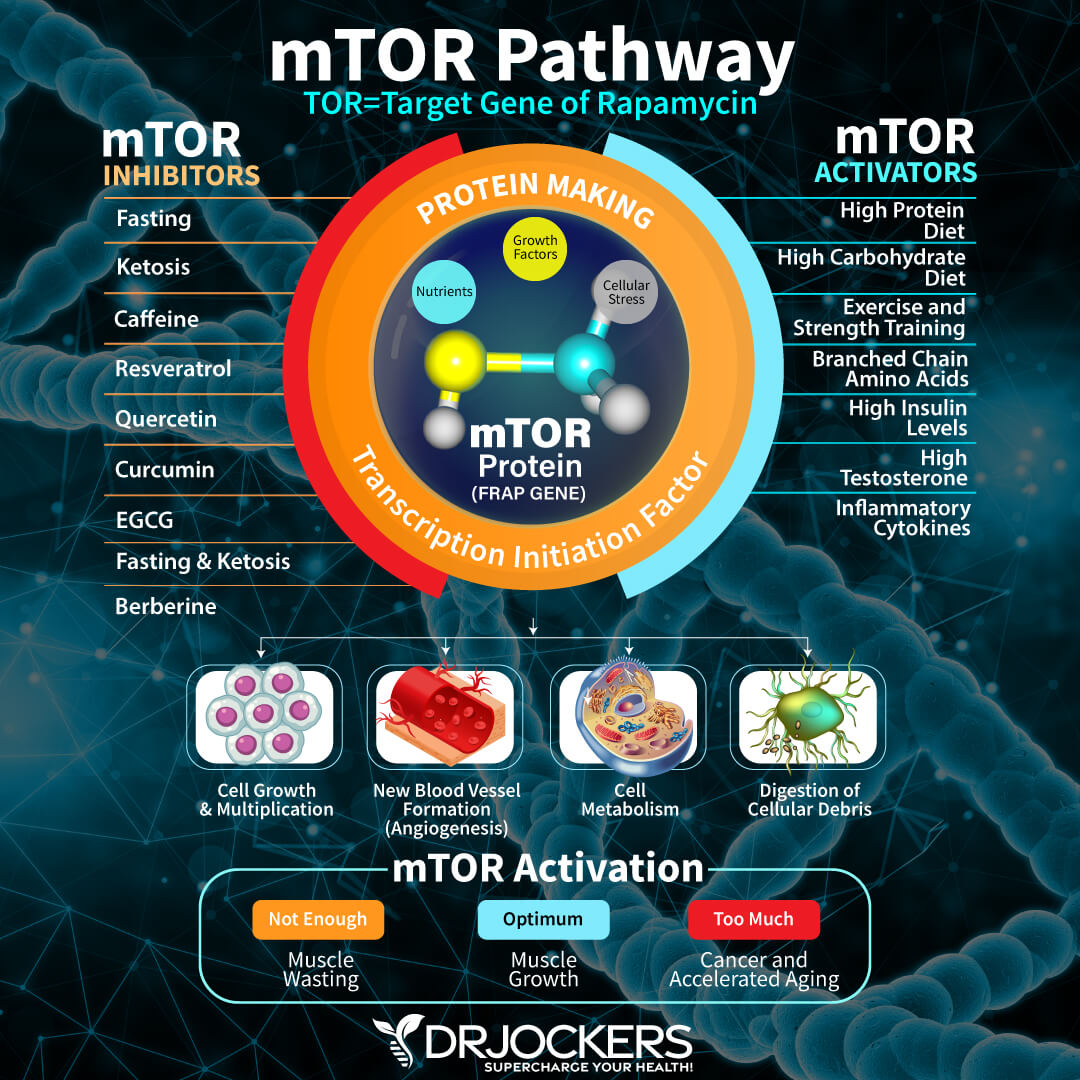
So mTOR is a master regulator of metabolism. However, it needs to be balanced with what we call, autophagy. While a temporarily elevated mTOR is great when trying to build muscle or in the earlier mentioned cases, chronically elevated mTOR may increase the risk of chronic disease and cancer.
It’s because one of the responses from mTOR is that it blocks autophagy which can lead to abnormal cell growth (1, 2). So, we need to support more autophagy to create balance.
What is autophagy? Autophagy is a process that happens when your body recycles and gets rid of old or excess cells that don’t benefit your health anymore. Autophagy helps your body to create new and healthier cellular structures. I will get into the importance of autophagy for longevity later in this article.
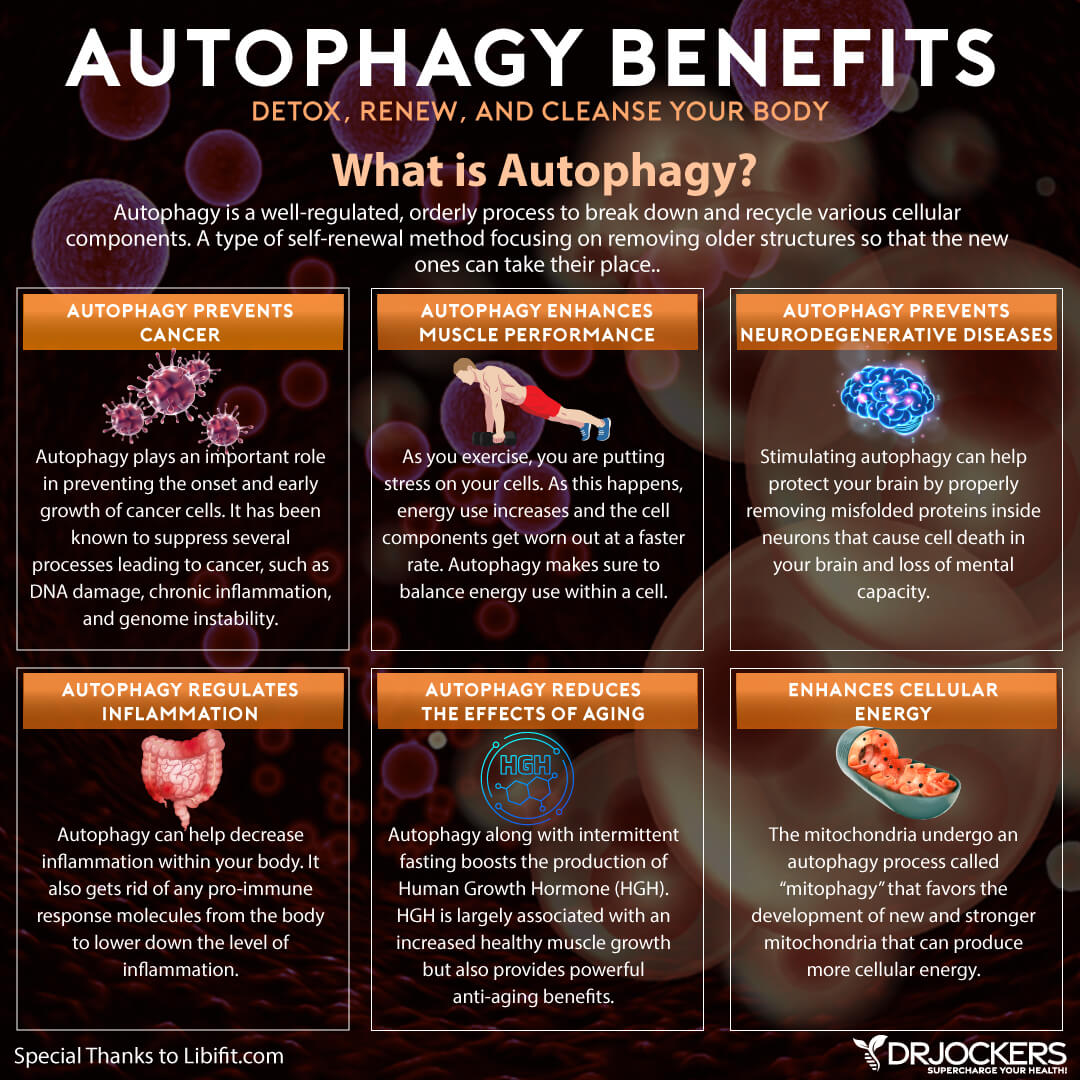
What is the AMP-K Pathway
In mTOR, there is an enzyme called mTOR kinase. This enzyme is responsible for activating mTOR and everything that mTOR does in your body. The AMP-K pathway, on the other hand, activates autophagy.
The AMP-K pathways stand for adenosine monophosphate-activated protein kinase. AMP-K is an enzyme that plays a crucial role in cellular energy homeostasis. It is critical for your metabolism, glucose, and lipid transport, lifespan, and overall health.
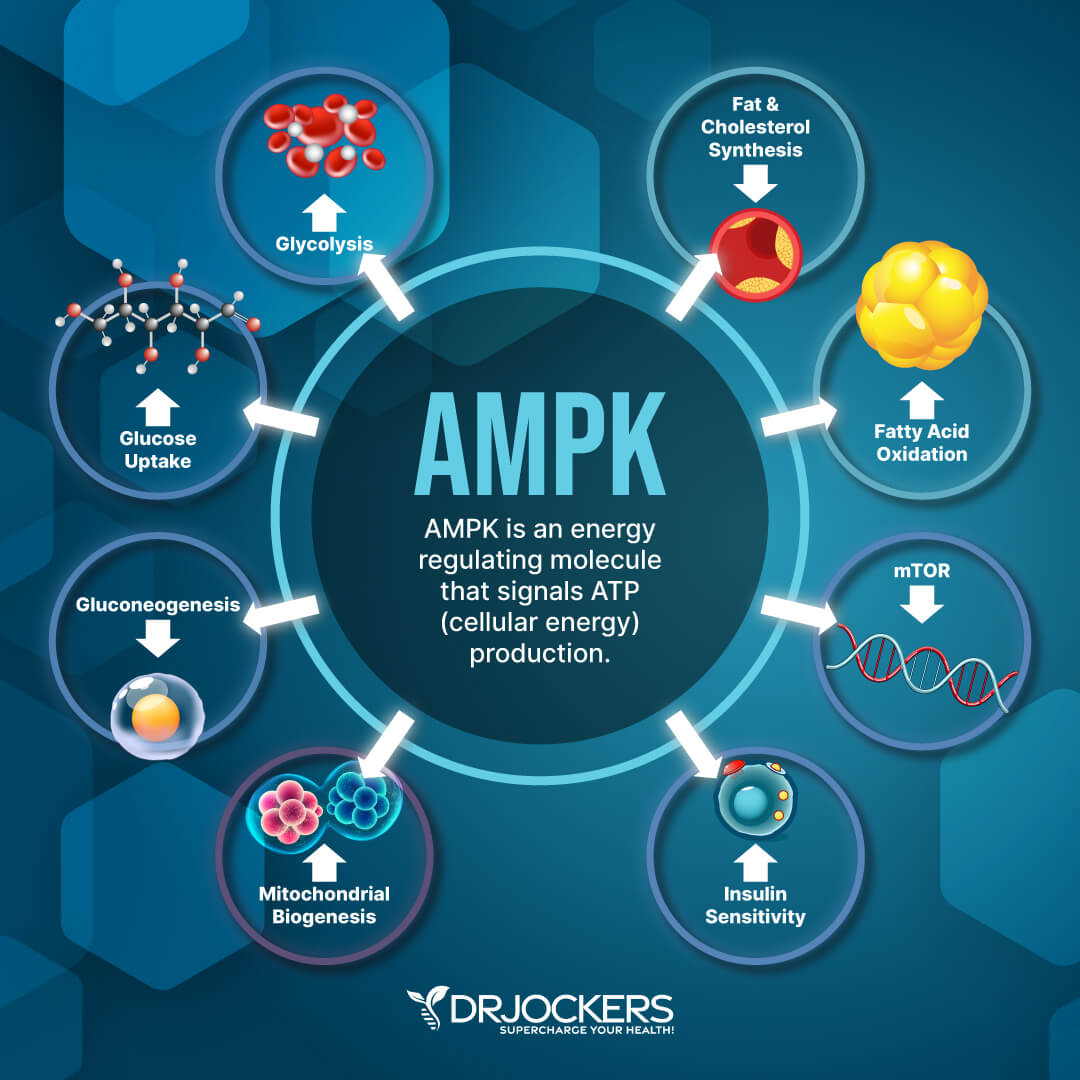
The Importance of Autophagy for Longevity
The word autophagy comes from the Greek term “auto–phagein”, which means “self-eating.” Autophagy refers to the process of cellular recycling where your cells metabolize various components to reuse them and build new and healthier cellular structures.
Autophagy is catabolic. It breaks down damaged proteins in the cell, including mitochondria particles, and helps your body to create new and healthier cellular structures.
The major driving force behind autophagy is cellular stress. This may come from nutrient deprivation, such as fasting exercise, or other stressors. Your body is constantly looking for homeostasis or physiological balance for survival.
This means that if your body experiences stress, it needs to make a change to achieve homeostasis again. When such stress happens, the innate intelligence of your body signals the breakdown of old and damaged cells and organelles to create new and healthy cells instead of efficient energy and overall health.
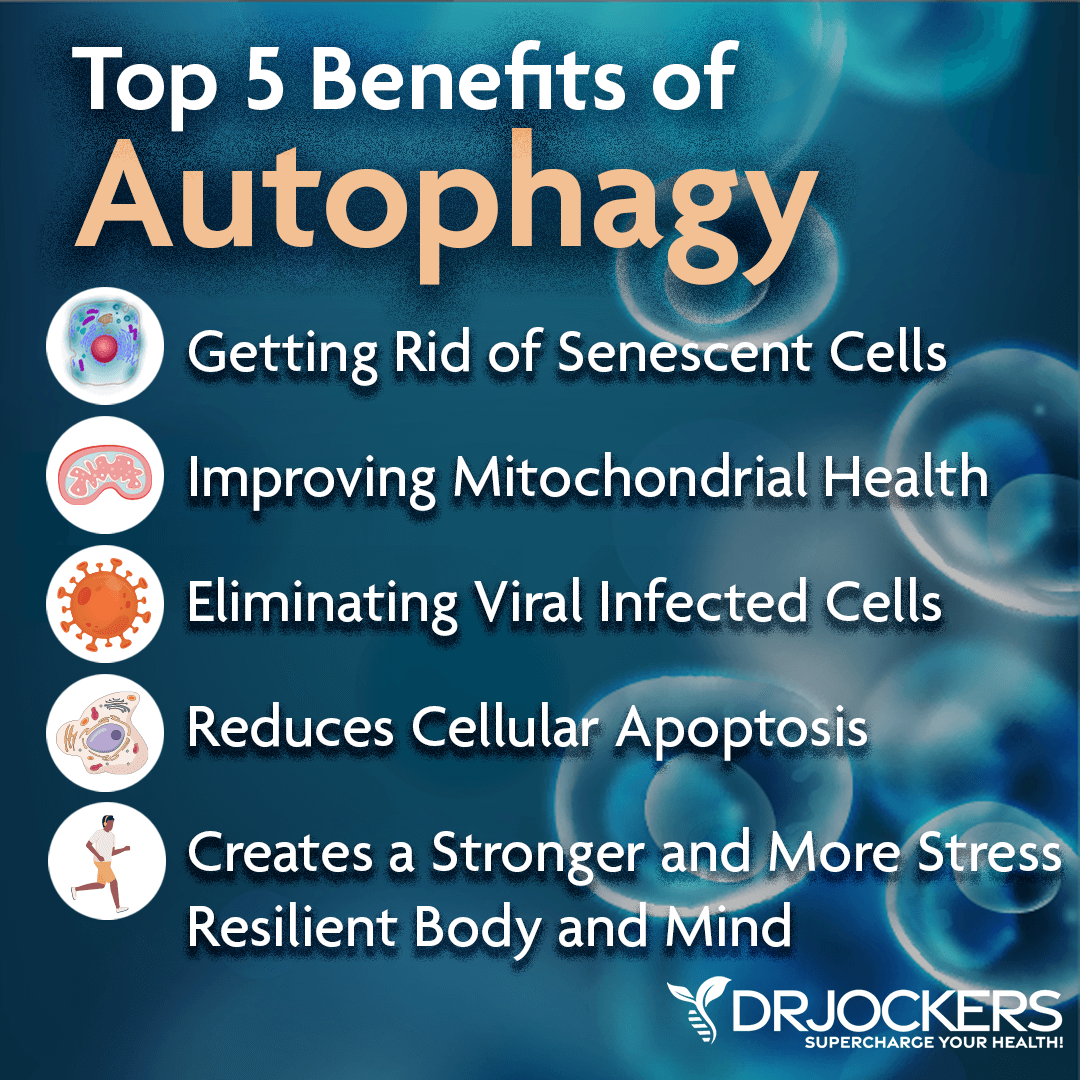
When Does mTOR Become a Problem?
Too much mTOR and chronically elevated mTOR can lead to too much cell production and may stop autophagy. This can result in an overgrowth of damaged proteins and cells called senescent or zombie cells which may increase inflammaging and speed up the aging process.
The problem is not mTOR but the environment that creates too much mTOR. We need to create a balance between mTOR and autophagy. Too much autophagy can lead to losing too much muscle and sarcopenia. The rate of muscle loss is correlated with earlier mortality. Preserving lean body mass is critical for longevity.
But too much mTOR can lead to chronic disease. So, a balance is key. You want the right cycle of autophagy and mTOR.
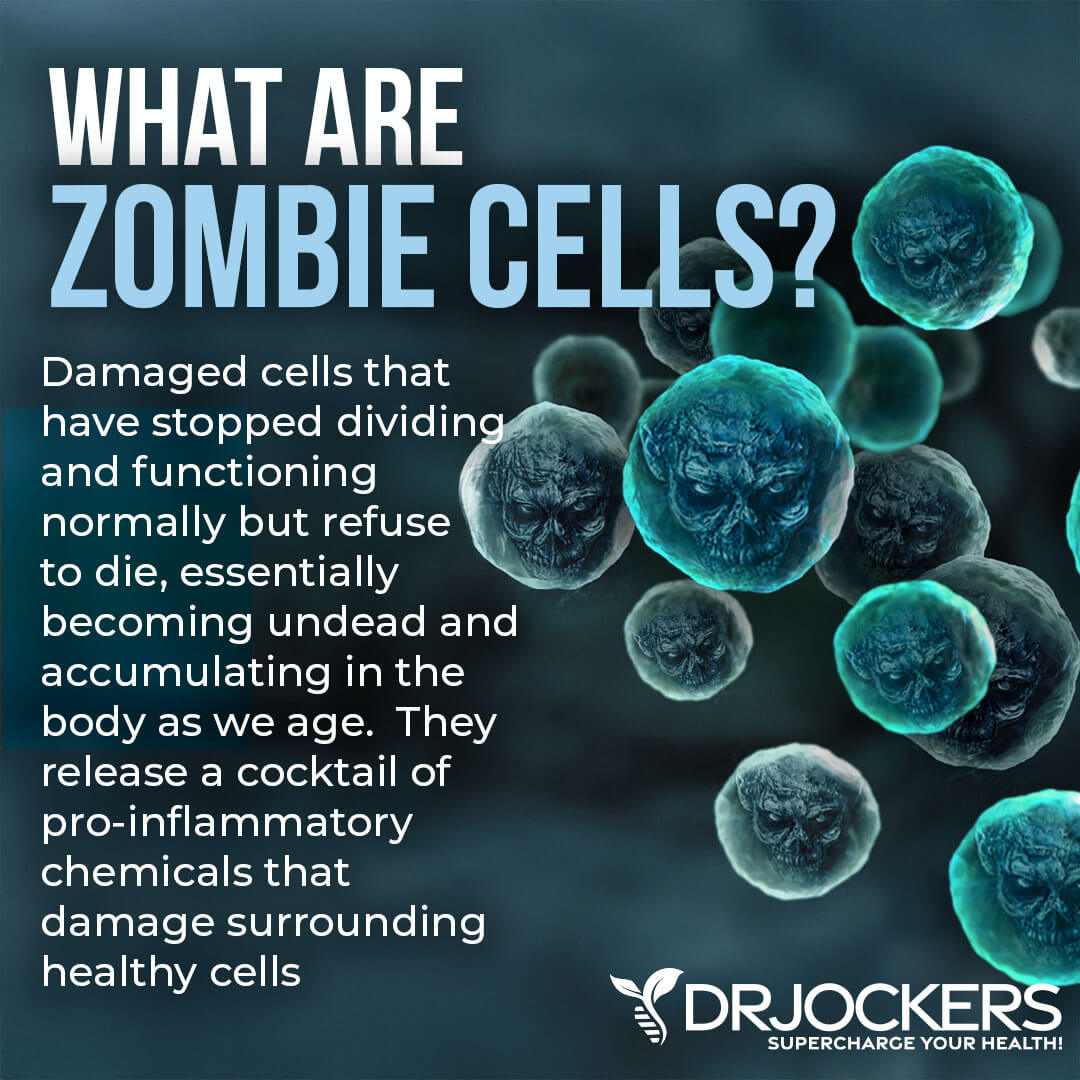
How To Optimize mTOR and Autophagy for Longevity
While both mTOR and autophagy are critical for good health, it is important to have a healthy balance between the two. As we get older, we need to emphasize more autophagy than mTOR, but it is still important to active mTOR to maintain healthy bone and muscle tissue.
The problem is that in our society, most people are spending too much time activating mTOR and they end up with a build-up of damaged zombie cells that cause further inflammation and dysfunction leading to chronic disease.
Fortunately, you can reduce issues related to too much mTOR and not enough autophagy with some simple natural strategies. Here is what I recommend to optimize mTOR and autophagy for longevity.
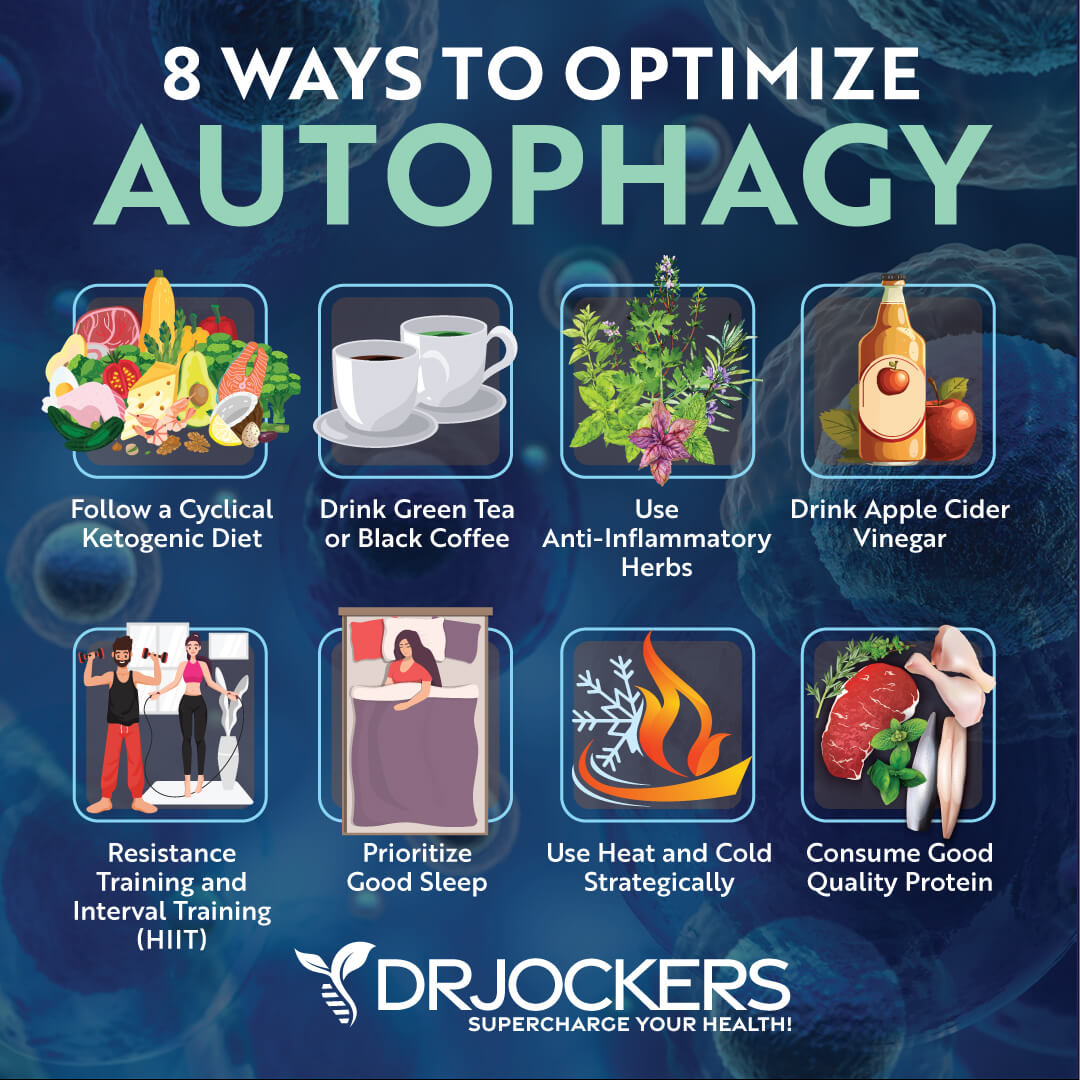
Anti-Inflammatory Nutrition Plan
I recommend following an anti-inflammatory nutrition plan. Remove any inflammatory foods from your diet. This includes avoiding refined sugar, refined oils, artificial ingredients, food additives, unnatural ingredients, food sensitivities, junk food, and ultra-processed foods.
Focus on real, nutritious, anti-inflammatory whole foods instead. Eat lots of greens, vegetables, herbs, spices, fermented food, low-glycemic index fruits, grass-fed beef, pasture-raised poultry and eggs, wild-caught fish and seafood, and wild game. Choose organic whenever possible.
If you can’t eat a completely organic diet, pay attention to the list of Dirty Dozen and Clean Fifteen. Anything on the Clean Fifteen list can be eaten non-organic when washed and peeled, but foods on the Dirty Dozen list should only be consumed organic.
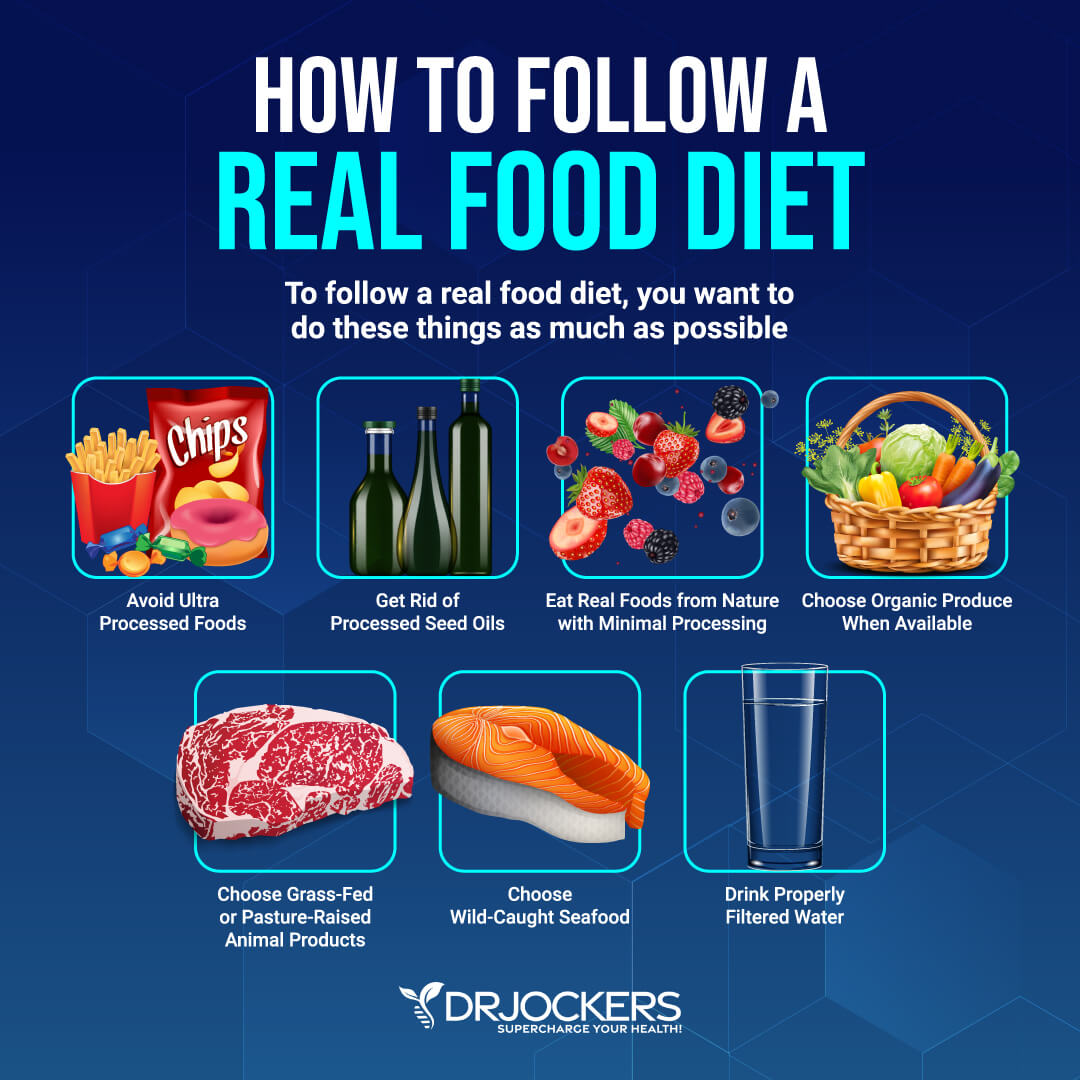
Eat Healthy Fats
Focusing on lots of healthy fats and reducing your carbohydrate load may help to improve autophagy. A low-carb, high-fat, ketogenic diet can drive up autophagy and support longevity.
According to a 2019 study published in the International Journal of Molecular Sciences, simple sugars can drive up mTOR (3). On the other hand, according to a 2021 study published in Frontiers in Cellular Neuroscience, a ketogenic diet can increase autophagy (4).
Healthy fats include avocadoes, olives, extra-virgin olive oil, MCT oil, coconut oil, coconut milk, grass-fed butter, ghee, lard, and other clean animal fat sources. Eat a moderate amount of protein, as outlined in the next section.
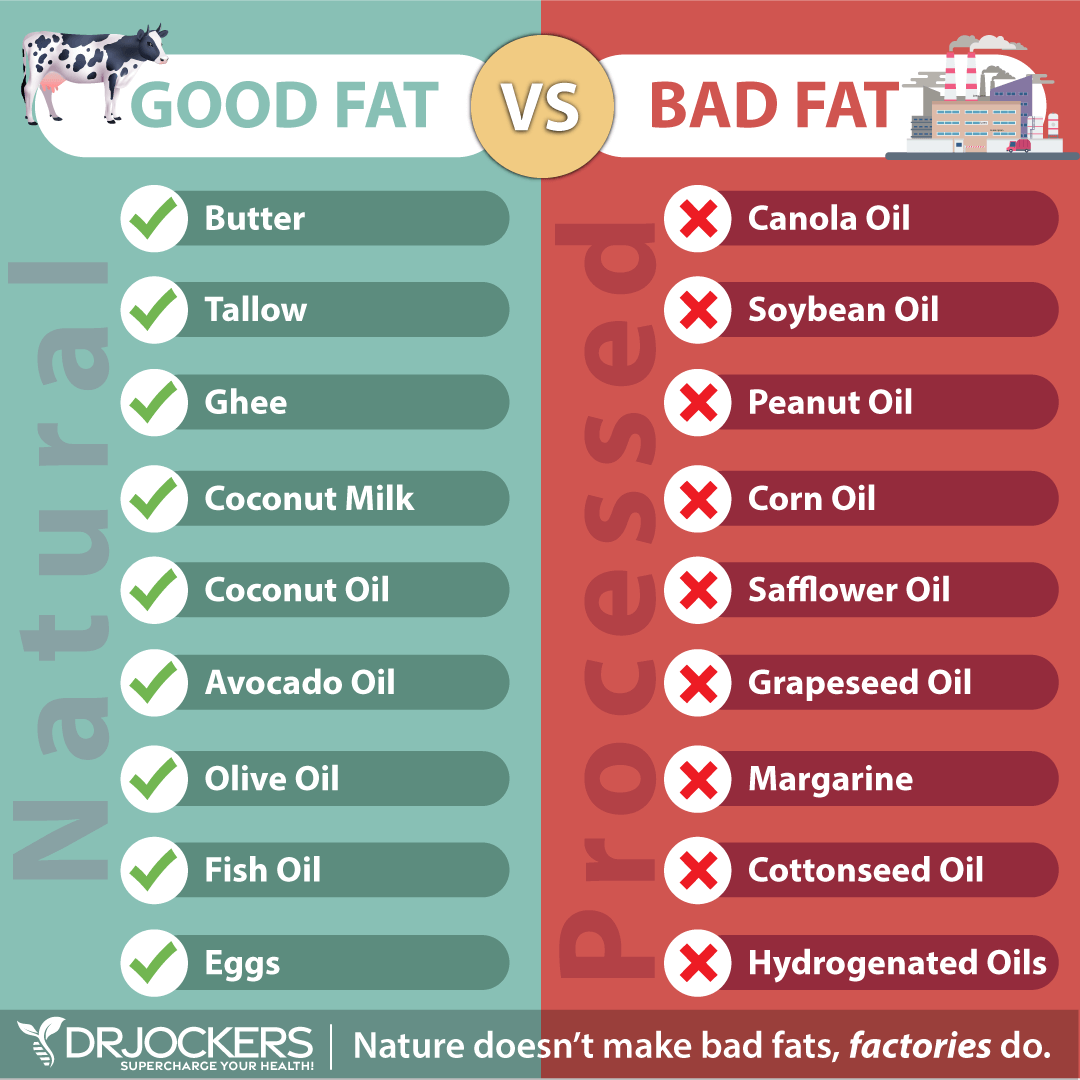
Prioritize Protein Levels
Protein is essential for muscle building, bone density, fat burning, brain function, and heart health. It is critical for optimizing lean body tissue and building muscle. It’s essential for improving satiety, reducing cravings, and supporting blood sugar balance.
Protein also stimulates mTOR. This is particularly important after exercise. According to a 2009 study published in Nutrients, consuming whey protein after resistance training helps to activate mTOR (5). As you will learn later, mTOR gets activated after exercise. Increasing this with quality protein is even better.
The best protein sources include grass-fed meat, wild-caught fish and seafood, pasture-raised poultry and eggs, organic Greek yogurt, organic cheeses, grass-fed whey, beef, or egg protein powder, organic plant protein powders (e.g., pea protein), nuts, seeds, fermented soy (tempeh), beans, and lentil.
So how much protein should you eat? This is a great article that can guide you on how much protein you should eat. But here is a summary:
- If your goal is to lose weight while maintaining an active lifestyle, then you would want to shoot for 1.0-1.5 grams of protein per kg of body weight. This is roughly 50-70% of your body weight in pounds in grams of protein per day.
- If your goal is to build muscle during an intense workout regimen, then 1.5-2.0 grams of protein per kg of body weight is a great target. Reserve the higher end of that range for hard training days. This is roughly about 80-90% of grams per protein as your body weight in pounds.
- If you are challenged daily to the point of exhaustion and need to constantly push the boundaries of your fitness, 1.8-2.5 grams of protein per kg of body weight is where you should aim to be.
- If you are mostly sedentary and do not partake in any form of strenuous exercise, you will likely do just fine in the range of 0.8-1.0 grams of protein per kg of body weight.
- If you are enduring some type of chronic disease, a ketogenic diet with 0.8-1.0 grams of protein per kg of body weight can be powerful.
- Following a ketogenic diet and reducing protein intake to 0.5-0.8 grams per kg of body weight is an important consideration to make if you are fighting cancer.

Practice Regular Intermittent Fasting
Fasting is a powerful practice that has been used for thousands of years across cultures for religious, spiritual, and health reasons. There are many types of fasting. Intermittent fasting is a popular and powerful way of fasting that involves fasting for only part of the day. Essentially, you are cycling between periods of eating and not eating.
Fasting and intermittent fasting have many health benefits, including improving autophagy. According to a 2023 study published in Human Nutrition & Metabolism, intermittent fasting may improve autophagy, inflammasome, and senescence gene expressions (6).
The most popular way of intermittent fasting is a 16-hour fasting window and an 8-hour eating window. It’s called the 16:8 fast. But some people have a shorter or longer fasting window. During your fasting window, you are fasting. This means that you can’t consume any food or calories, only water, herbal tea, and some cases, coffee. During the eating window, you want to meet all your nutrient needs into 2 or 3 meals, with no snacking.
Start with a Simple Fast, a 12-hour eating window. Keeping the 12-hour fasting window is simple. If you finish dinner at 6 pm, you can eat again at 6 am. With a 7 pm dinner, you are ready for your first meal at 7 am. Once you are comfortable with this, increase your fasting window gradually to 14, 16, and even 18 hours.
You don’t have to practice this every day unless you want to. You may benefit from 2 to 3 fasting days a week. I recommend 16:8 (16 hours fasting, 8 hours of eating) or 18:6 (18 hours fasting, 6 hours of eating) a few times a week and 14:10 (14 hours fasting, 10 hours of eating) at the minimum. You may learn more about intermittent fasting from this article.
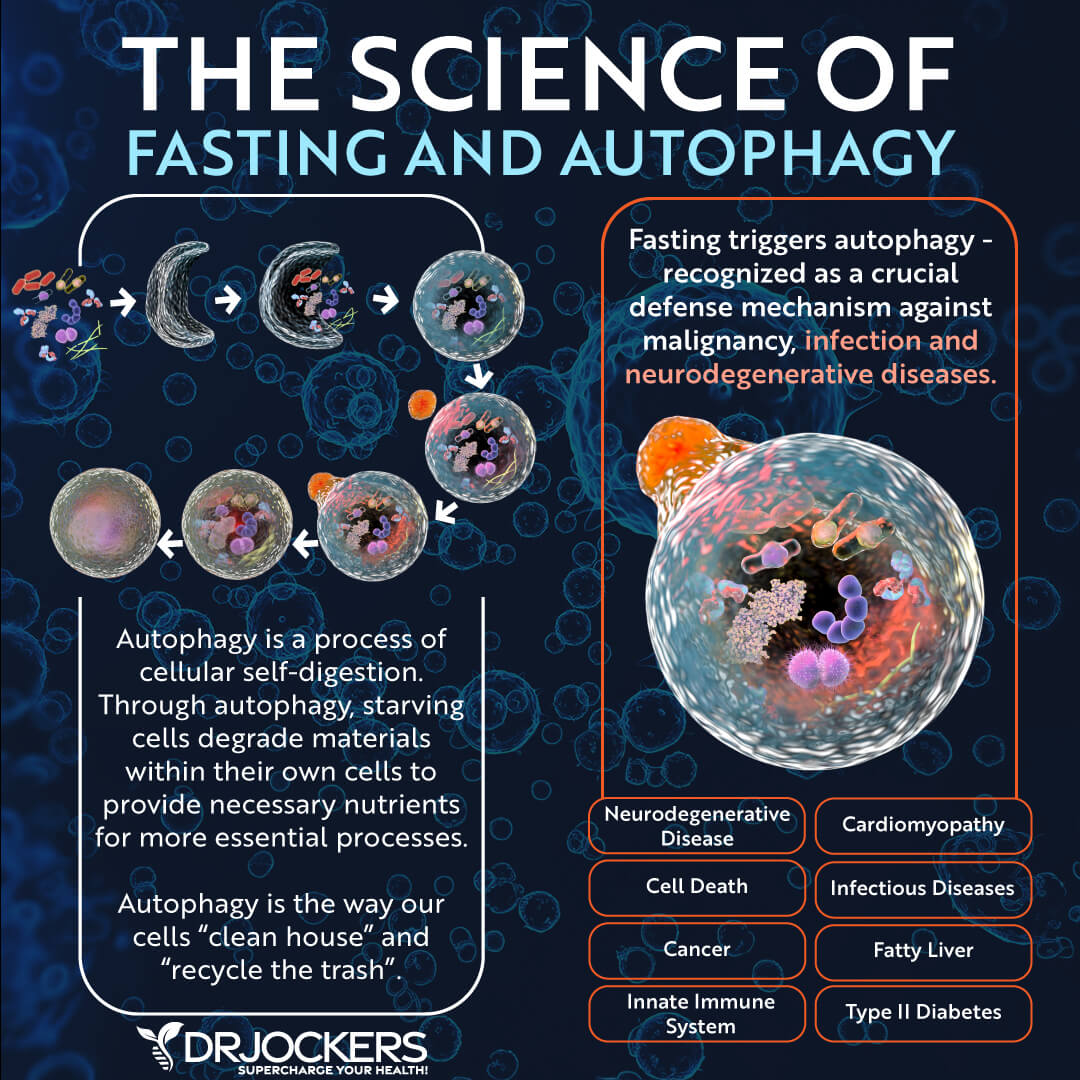
Consider Doing a 20-24+ Hour Fast Each Week
In addition to intermittent fasting several times a week, I recommend doing a 20 to 24+ hour fast every day. This may mean that you stop eating after dinner one day and not eating until late lunch or dinner the next day, 20 or 24 hours later.
This can really improve autophagy and give your digestive system a break once a week. It is also a great preparation for an extended fast, which I will talk more about in the next sections. It’s important that you nourish your body well before your fast and easily back into eating again with a nutrient-dense diet.
Consider Doing the Fasting Mimicking Diet
The Fasting Mimicking Diet®, or FMD® is a diet that provides you with the benefits of fasting without depriving your body of food and nutrients. The FMD® is a partial fasting plan that is high in nutrients, low in protein, and low in carbohydrates.
It has many benefits, including improving autophagy. According to a 2024 study published in Nature Communications, the diet FMD® may activate autophagy, lower insulin resistance, lower HbA1c, improve metabolic health, and reduce the risk of disease (7).
The FMD® is basically a 5-day protocol that you can do every 8 to 12 weeks or every month depending on your health goals. The FMD® protocol outlines how many calories and the ratio of macronutrients you can consume daily.
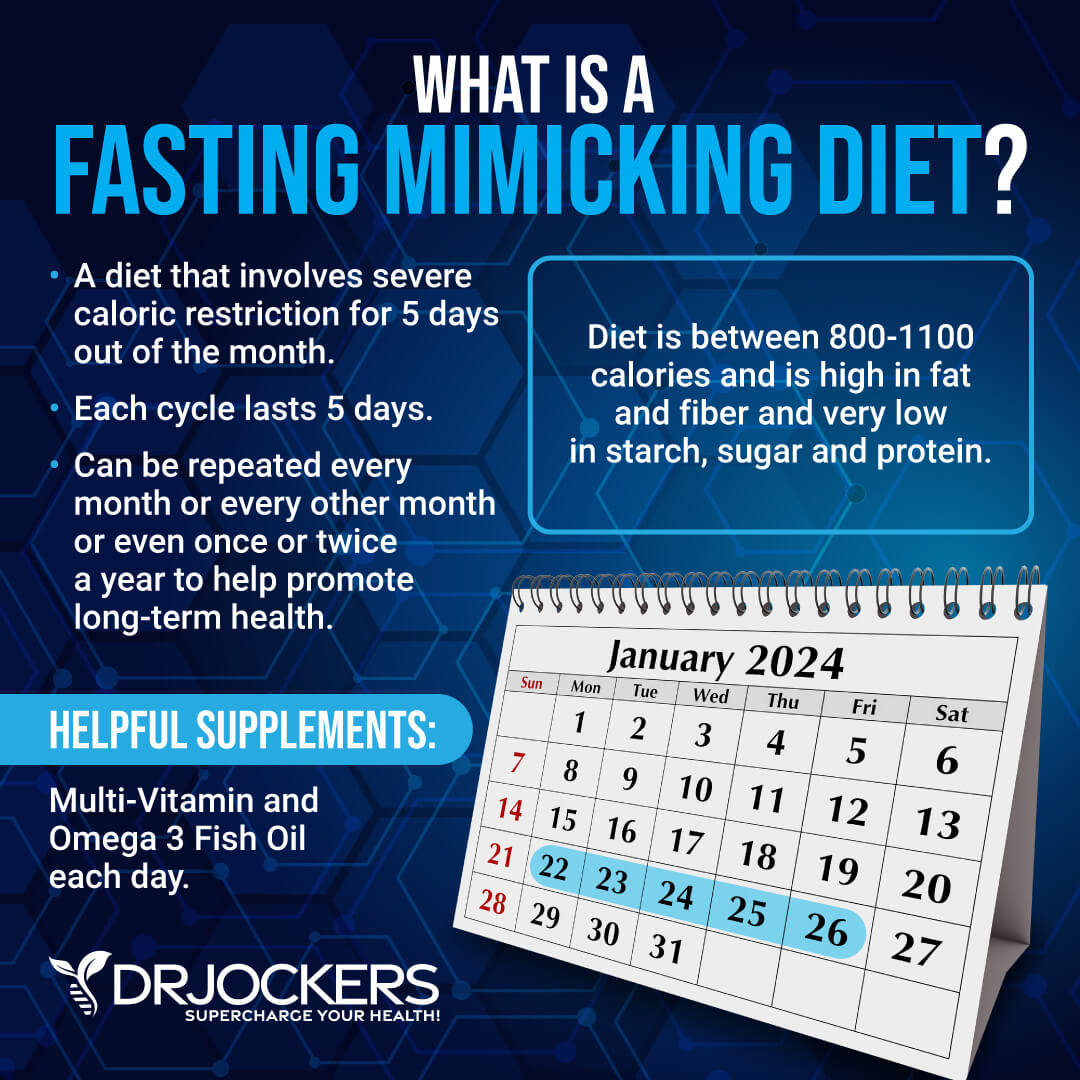
Before starting with the FMD®, follow a lower carbohydrate diet for about a week. Focus on fruits, vegetables, healthy fats and wild-caught fish and organic meat as protein sources. I also recommend that you take omega-3 supplements this week.
While on the FMD® protocol, follow this plan:
- Day 1: Restrict your calories to 1,100 calories a day. 500 of these calories should come from complex carbohydrates and 500 from healthy fats. About 100 calories or 25 grams of plant-based proteins are also allowed, mainly from nuts.
- Day 2 – 5: During the last for days, your calories are restricted to 800 calories only with 400 calories from complex carbs and 400 calories from healthy fats.
- Day 6: Though your FMD® is officially over, day 6 is a transition day. Follow a diet rich in fruits, vegetables, healthy fats, and lean proteins. It is important to note that pastries and other foods with gluten, refined sugar, and highly processed ingredients are never healthy, even if you are not fasting. If you eat dairy, it is important that you choose organic dairy products.
I recommend following the once a month for 3-6 months and then once a quarter for best results.
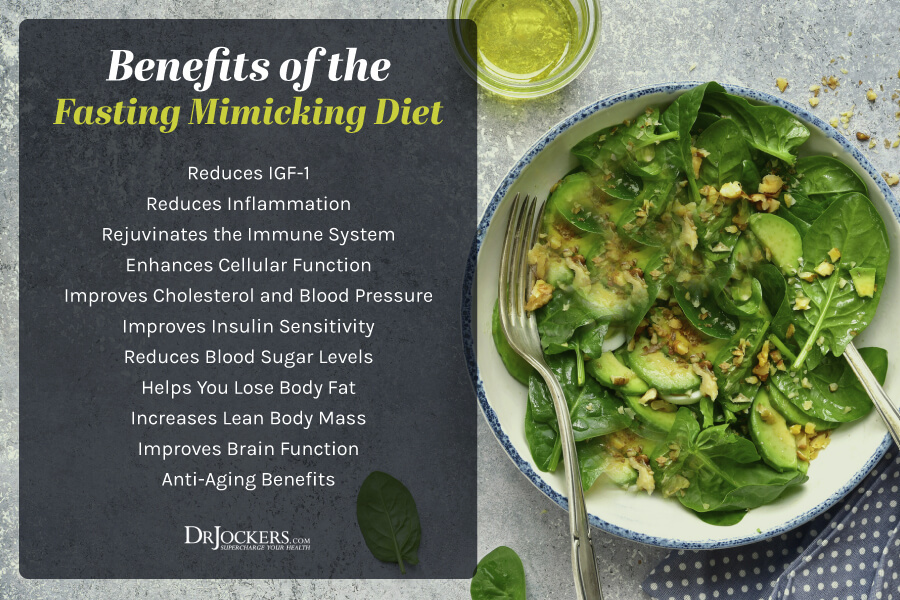
Consider Doing an Extended Fast
If you are experienced with intermittent and one day fasting, you may go over 24 hours. An extended fast may last for 3 to 5 days. During this fast, you may drink water, and in some cases herbal tea and coffee.
Pay attention to your electrolyte levels, salt can help. I recommend this once or a few times a year only. Extended fasting is not for everyone, and the right preparation is key. You can learn more about extended fasting or water fasting from this article, including who should and should not practice extended fasting and how to prepare for it safely.
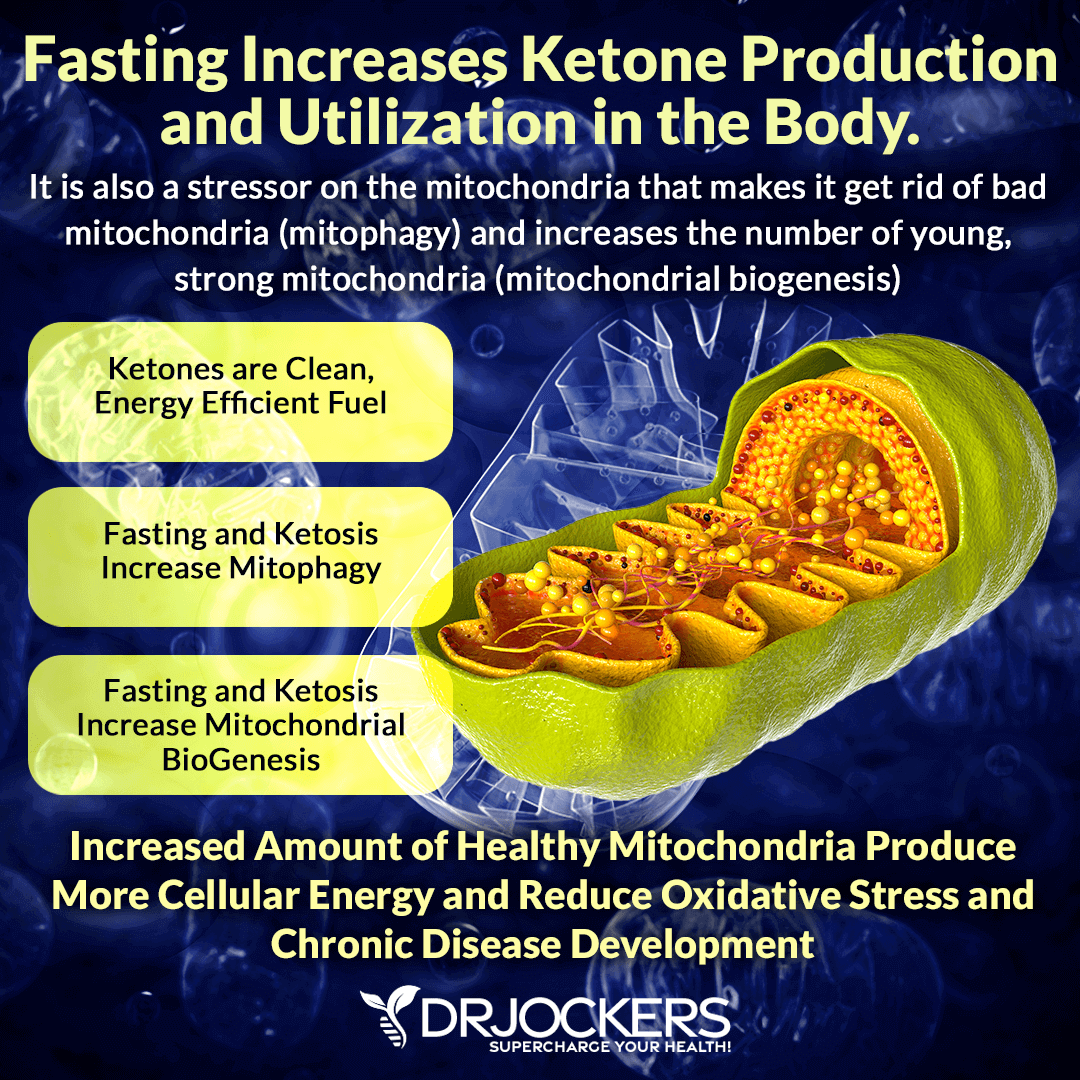
Get Regular Exercise and Movement
Exercise will both put the break on the mTOR pathway and will also accelerate it. You want spring load mTOR. Exercise is catabolic. It drives autophagy and reduces mTOR, but after exercise, mTOR is triggered. This can lead to the perfect balance.
According to a 2017 study published in Science Reports, resistance training can increase mTOR, muscle protein synthesis, net protein balance, and muscle strength (8). According to 2020 research published in Frontiers in Neuroscience, physical exercise can support both autophagy and apoptosis (9).
The best way to support this is intermittent fasting and then exercising in a fasting state, right at the end of your fast. This will inhibit mTOR even more but after exercising it will accelerate it even more. If you must exercise during your eating window, it works as well. But I find that it’s the best at the end of your fast at a fasting state.
For exercise, I recommend focusing on doing 20 to 30 minutes of resistance training 3 to 5 days a week and low-intensity movement, such as walking 5000 to 10,000 steps daily. Additionally, you want to move throughout the day, getting up regularly, stretching, and getting some steps in.
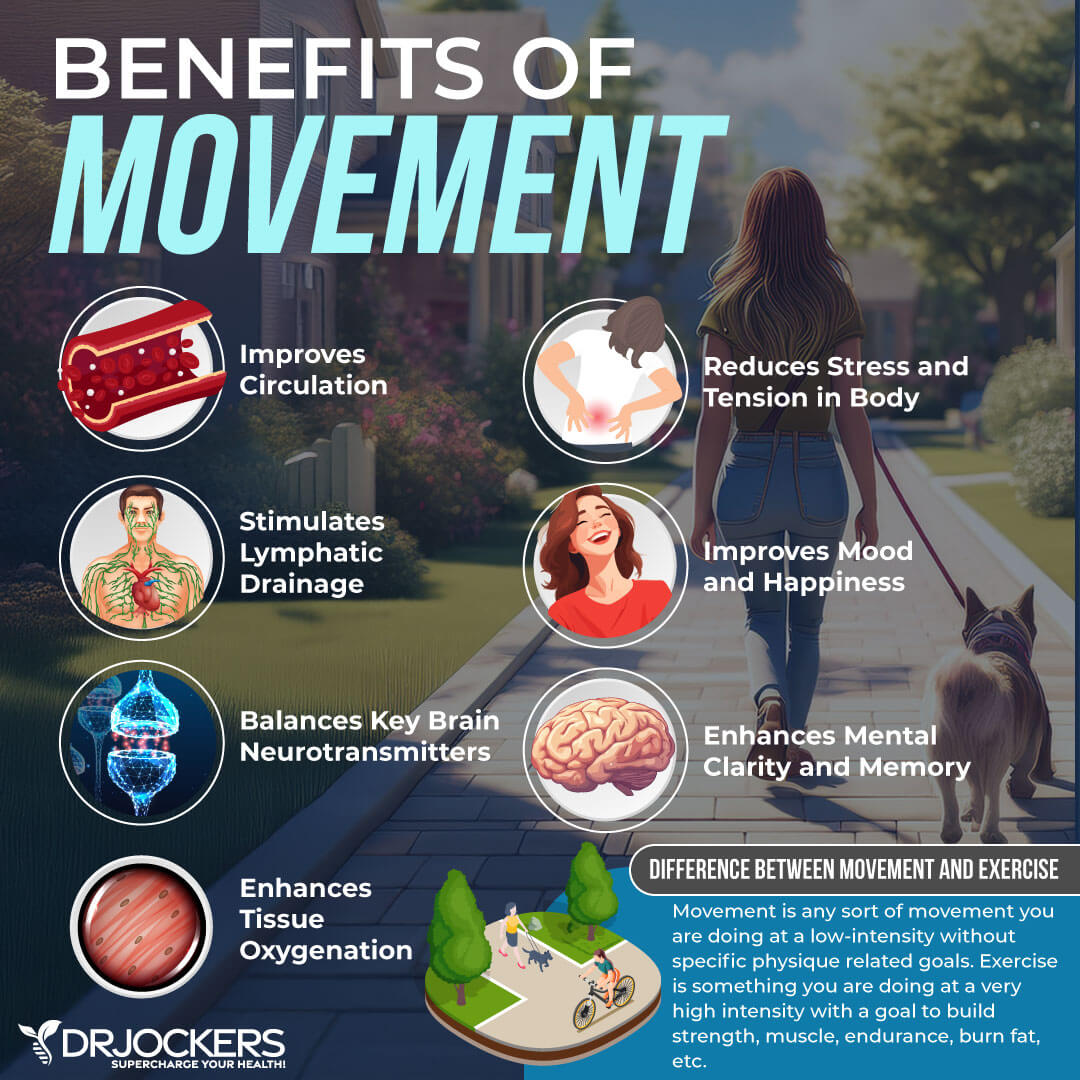
Optimize Sleep and Circadian Rhythms
I recommend optimizing your sleep and circadian rhythms. According to a 2012 review published in Trends in Endocrinology and Metabolism, rhythmic autophagy is critical for nutrient and energy metabolism (10). I recommend going to bed and getting up at the same time every day to support your circadian rhythms.
Getting up with the sun is the best option to support your body’s natural rhythm. Aim to get 7 to 9 hours of restorative sleep each night.
Avoid heavy food, sugar, alcohol, electronics, and stress at night. Try meditation, reading, journaling, taking a bath, or other calming activities. Support your sleep with a supportive, comfortable bed, mattress, pillows, and bedding. Use a blackout curtain and an eye mask for darkness.
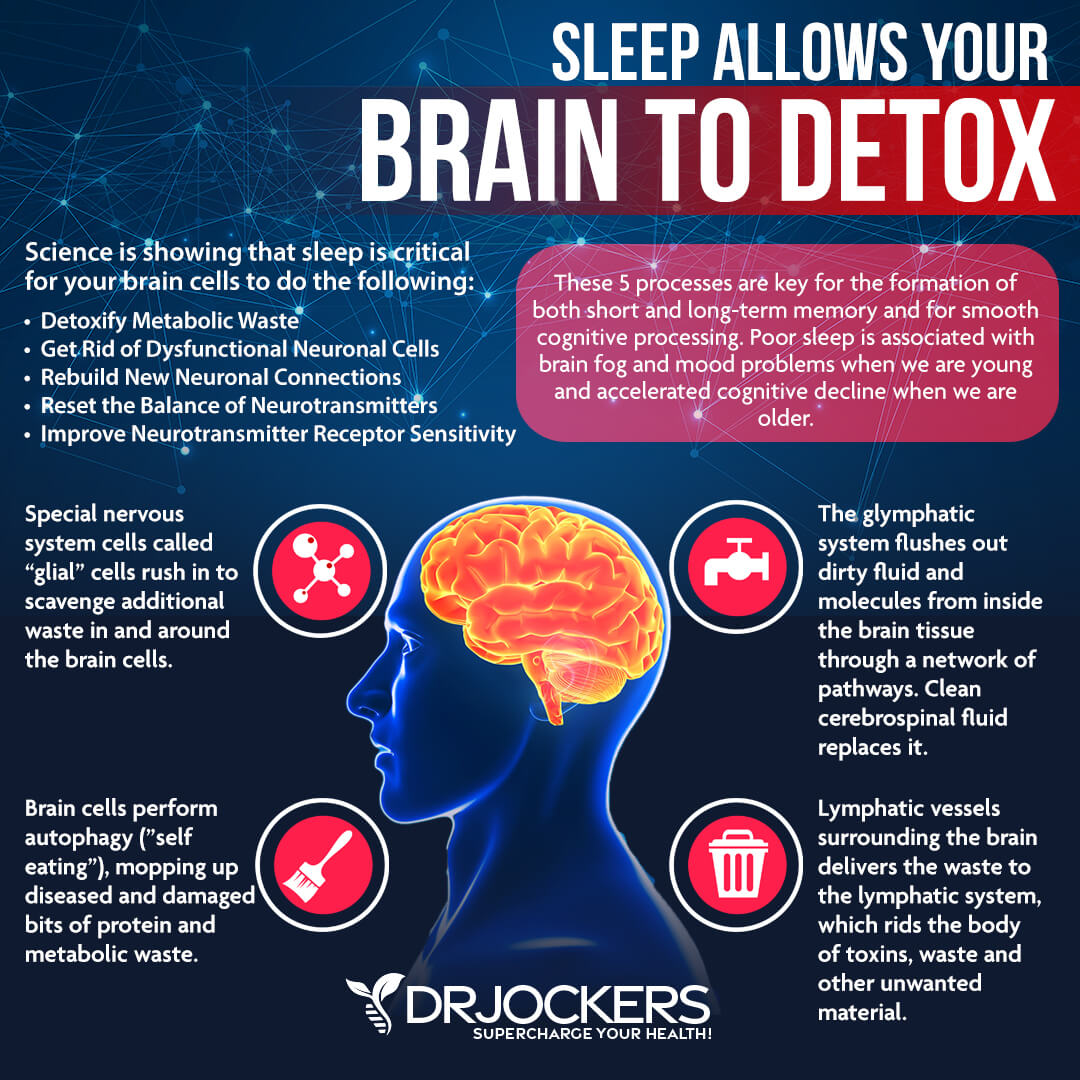
Consider Doing Hot/Cold Therapies
Hot and cold therapy may both improve autophagy. According to 2018 research published in the International Journal of Molecular Sciences, heat shock proteins support different autophagic pathways (11). According to a 2021 paper published in Advances Biology, moderate cold therapy increases autophagic and heat shock protein activity while high cold stress leads to apoptosis (12).
I recommend using an infrared sauna for heat therapy. You may finish your sauna session with a cold plunge into a pool, sitting in a cold bath, or a cold shower. You may also alternate between the sauna and cold plunge or hot and cold shower to improve autophagy.
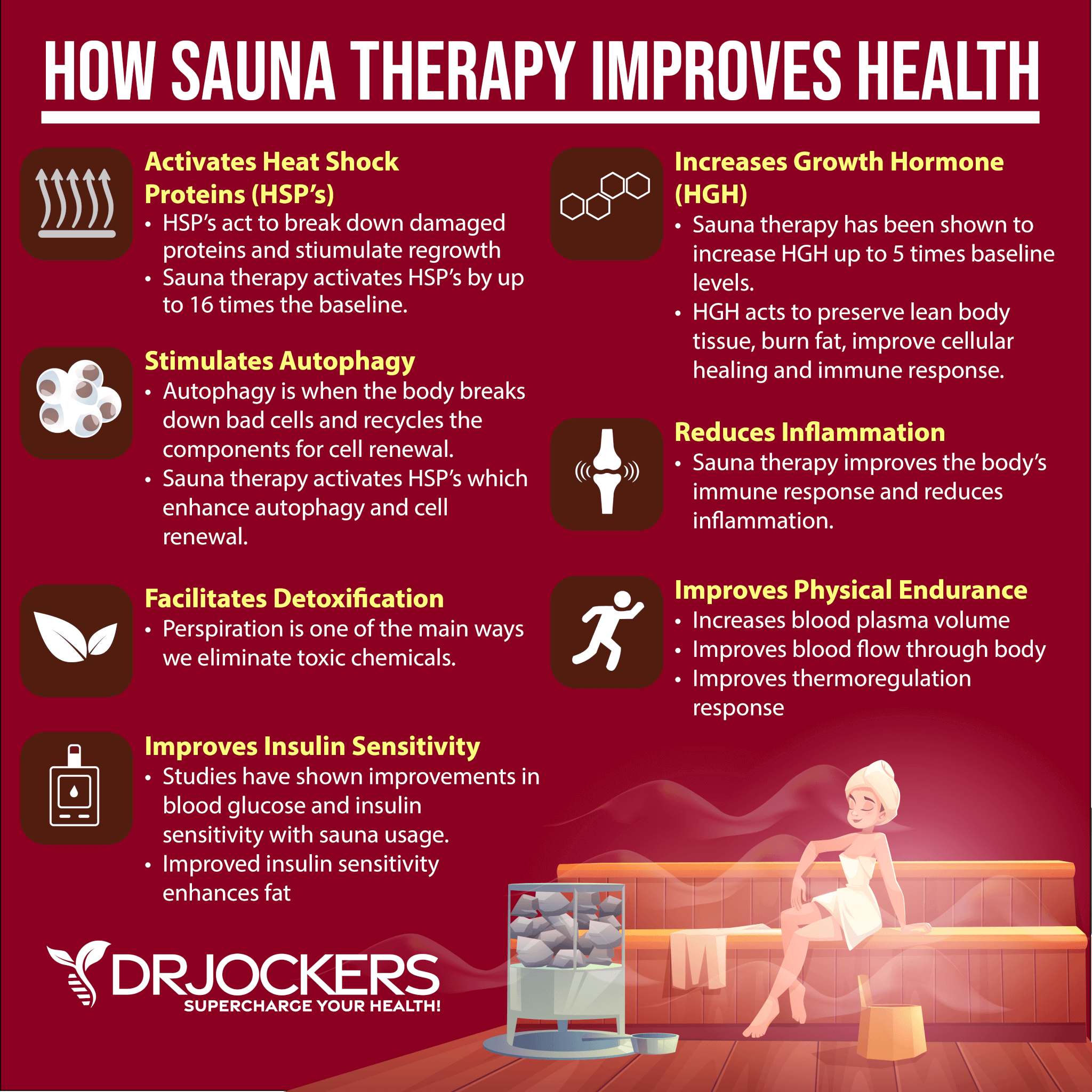
Consider Caffeine During Fasting Window
You may want to consider drinking some caffeine during your fasting window. Coffee and caffeine may help to improve autophagy. You may choose organic coffee, green tea, or black tea.
Skip caffeinated energy drinks, those are sugary processed foods. Coffee and tea, on the other hand, have health benefits, including improved autophagy, blood sugar balance, fat burning, and antioxidants.
According to 2014 in vivo research published in Cell Cycle has found that coffee may improve cellular autophagy (13). The study has found that the polyphenols in coffee can induce autophagy and also reduce acetylation levels of proteins. Stimulating autophagy may help to lower the risk of metabolic and other diseases and reduce mortality.
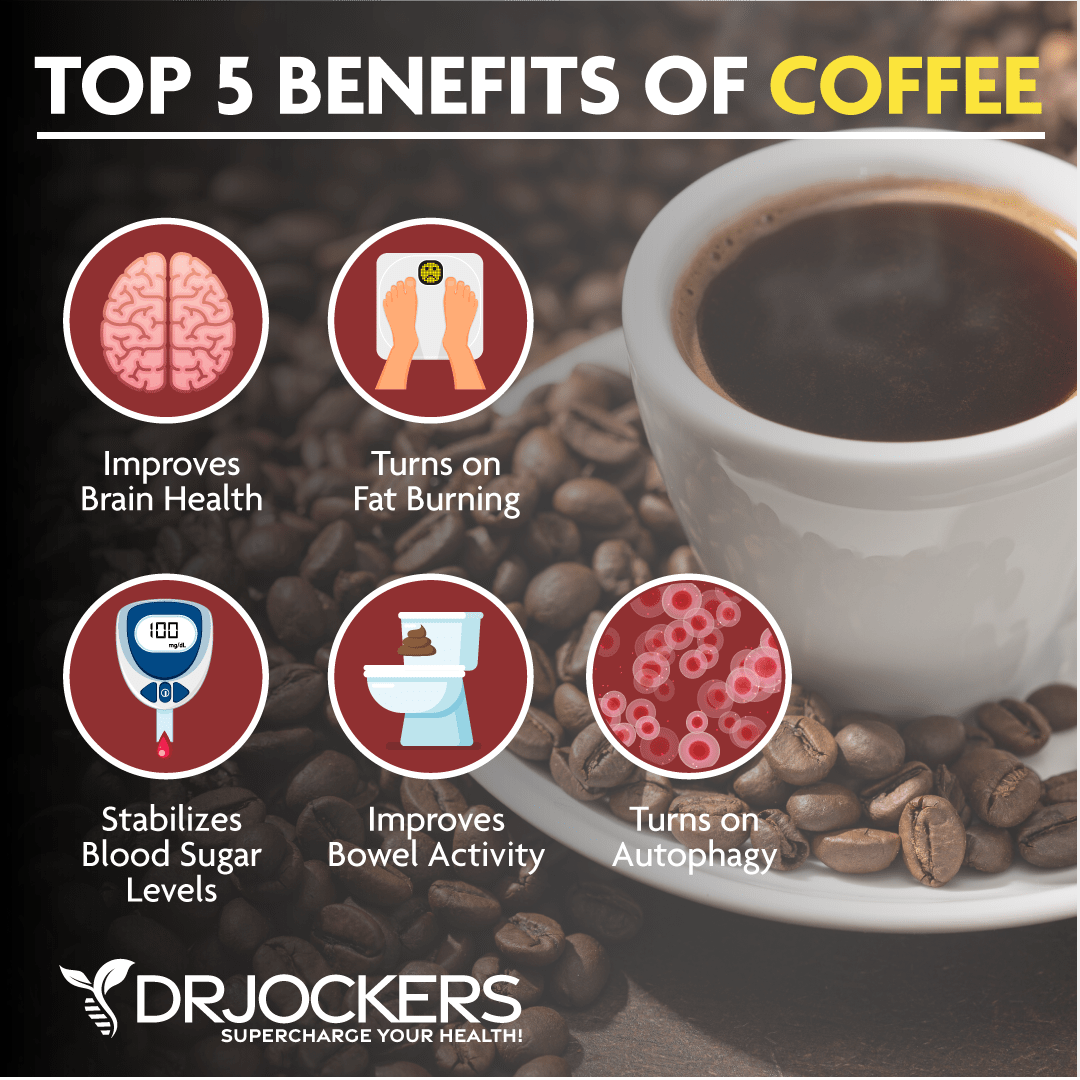
Use an Organic, Mycotoxin Free, Shade Grown Coffee
Low-quality conventional coffee is not great. Pesticides and mycotoxin in coffee can be harmful to your health. It is important that you drink high-quality, organic, mycotoxin-free, and shade-grown coffee for optimal benefits and safety.
I personally love and highly recommend Lifeboost Coffee. This coffee is organic, free from GMO, shade-grown, sun-dried, pesticide and chemical-free, full of antioxidants, stomach-friendly, less acidic than most coffee, and fairly traded with a 2-year shelf life. Most importantly, it is absolutely delicious.
Right now, they have a special holiday sale where you can this delicious, low-acid, immune-boosting coffee for up to 50% off for a limited time.
Use Autophagy-Activating Herbs
I also recommend using herbs that help to activate autophagy. Some of my favorite autophagy-activating herbs include berberine, quercetin, curcumin, resveratrol, 6-shagaol, EGCG, citrus bergamot, and carnosic acid.
According to a 2018 study published in Cell Death and Disease, berberine may increase autophagy and reduce the risk of atherosclerosis (14). According to a 2022 study published in the Acta Biochemica et Biophysica Sinica (Shanghai), quercetin may improve autophagy (15). According to a 2021 study published in Pharmaceuticals (Basel), resveratrol and curcumin may improve autophagy and reduce the risk of cancer (16).
According to a 2020 study published in BMC Complementary Medicine and Therapeutics, 6-shagoal may help to increase of apoptosis and autophagy in colon cancer cells (17). According to a 2020 review published in Medical Science Monitor, Epigallocatechin-3-Gallate or EGCG may help to trigger stress-induced apoptosis and autophagy to reduce the risk of disease (18).
According to a 2014 article published in PLoS One, citrus bergamot essential oil may help to improve autophagy in neuroblastoma cells (19). According to a 2024 study published in the International Journal of Molecular Sciences, carnosic acid may help to induce autophagy in lung cancer (20).
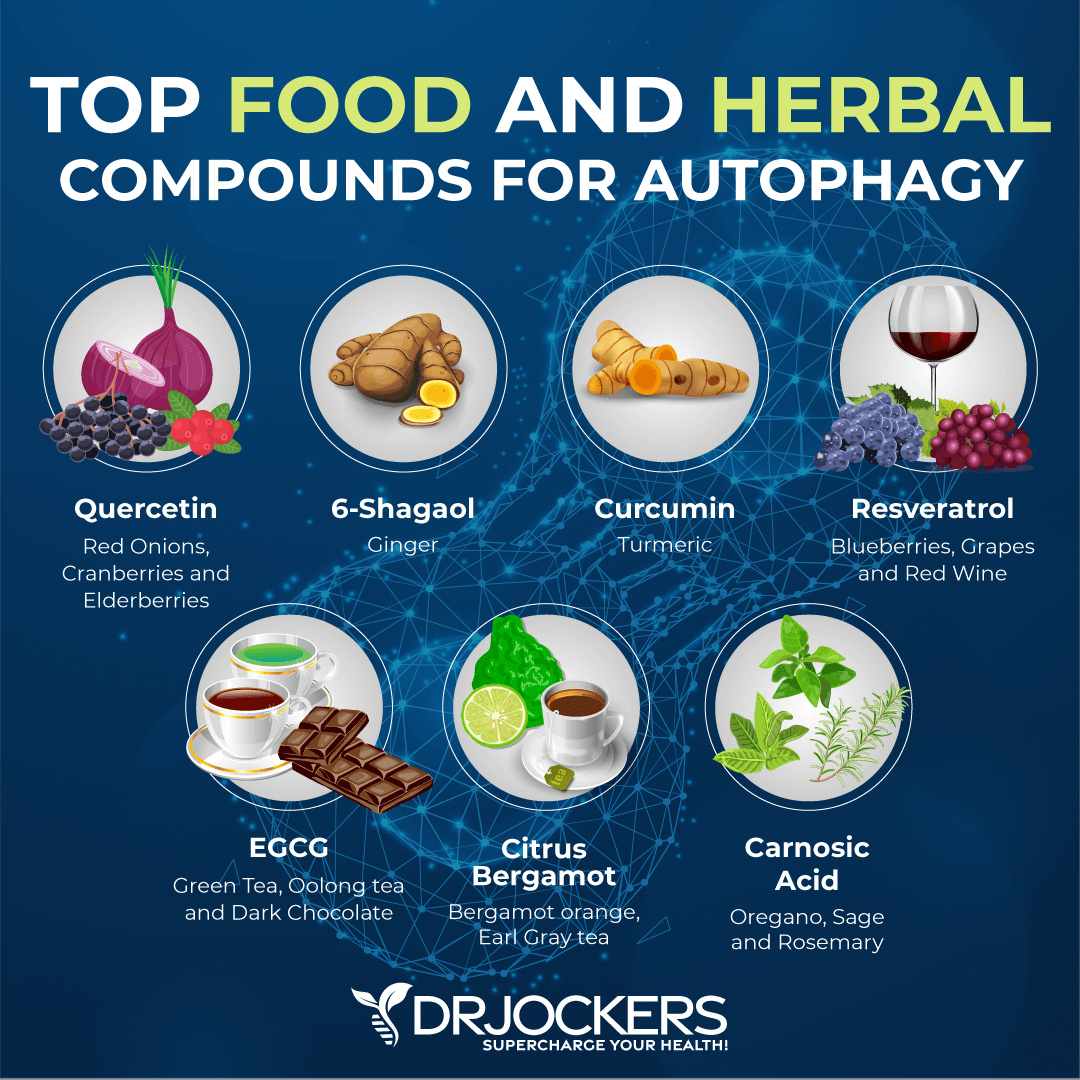
Consider Using Glycemic Synergy
I recommend using Glycemic Synergy. This supplement supplies berberine combined with alpha lipoic acid to help support optimal blood sugar and insulin metabolism, cardiovascular health, and liver health. Berberine is an alkaloid compound found in the roots, rhizomes, stems, and bark of several plants commonly used in botanical and Chinese medicine, such as goldenseal, Oregon grape, barberry, and Berberis aristata.
Lipoic acid is best known for its antioxidant properties and its ability to support healthy insulin metabolism and sensitivity. It is also a key cofactor for mitochondrial enzymes involved in cellular metabolism and energy (ATP) production. Take one capsule per day with a meal or as directed by your healthcare practitioner.
Consider Using Inflam Defense
I also recommend using Inflam Defense to reduce inflammation and improve longevity. It is a powerful combination of anti-inflammatory herbs, such as curcumin, boswellia, ginger, and rosemary extract, as well as nutrients from quercetin and rutin and proteolytic enzymes.
I love Inflam Defense because it can help downregulate the inflammatory process. It can help you if you are dealing with the negative impact of acute or chronic inflammatory conditions. Take one capsule twice a day with meals or for advanced protection, take two or more capsules twice a day or as directed by your health care practitioner.
Final Thoughts
A lot of practitioners focus on increasing autophagy and reducing mTOR for health. However, mTOR and autophagy have an important role.
Too much mTOR and too little autophagy can increase the risk of chronic disease. However, too much autophagy may increase the risk of sarcopenia which can lower longevity. For health and longevity, you want the right cycle of autophagy and mTOR. I recommend following my tips in this article to optimize mTOR and autophagy for longevity.
If you want to work with a functional health coach, I recommend this article with tips on how to find a great coach. We do offer long-distance functional health coaching programs. For further support with your health goals, just reach out and our fantastic coaches are here to support your journey.
Metabolic Autophagy & Cellular Healing Masterclass
Autophagy is the body’s innate mechanism for deep cellular healing and repair and it helps us reduce the effects of aging, inflammation and cellular damage.
The Nobel Prize in 2016 was awarded to the Japanese researcher Yoshinori Ohsumi for his breakthrough work in helping us understand the process of autophagy and how it works. If you are struggling with your health or desire to optimize your health, activating the appropriate amount of autophagy is a critical component.
This masterclass will give you in-depth video trainings along with image-rich, research-based guides to help you understand the tools and strategies to unlock your body’s dormant healing potential. You will also learn my signature 6-week Metabolic Reset Cycle that will show you how to utilize advanced nutrition strategies for deep cellular healing!
Check out the masterclass here where you will learn my best action steps for optimal healing!
